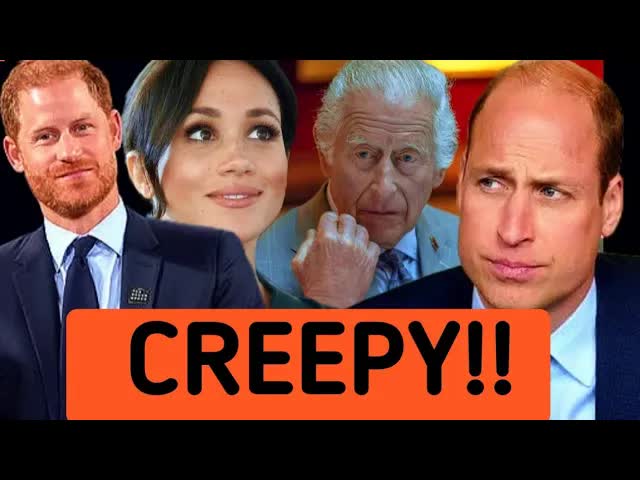In the spotlight of royal scrutiny, Meghan Markle has become a focal point of both fascination and disdain, drawing attention from royalists and the media alike.
This relentless examination of her life reveals an unsettling obsession that transcends mere curiosity.
It raises questions about the motivations behind such intense scrutiny.
Is it merely her difference that captivates the public, or is there a deeper, more troubling undercurrent of prejudice at play?
Meghan Markle, a woman of mixed heritage, stepped into the royal realm with a unique perspective that challenged traditional norms.
Yet, rather than being embraced for her individuality, she became a target for criticism and judgment.
The overwhelming focus on her race highlights a disturbing reality: the obsession with Meghan is fundamentally tied to the color of her skin.
This fixation serves as a mirror reflecting the systemic racism that still pervades society, where individuals of color are often subjected to harsher scrutiny than their white counterparts.
This unhealthy obsession with Meghan is not merely a personal vendetta; it is indicative of broader societal issues.
It reinforces damaging stereotypes and perpetuates a culture of racial bias that continues to thrive, even in the modern age.
The relentless attention directed at Meghan Markle is not just alarming; it is a glaring manifestation of racism that we must confront head-on.
As Meghan navigated her entry into the royal family, initial excitement quickly morphed into a troubling pattern of bullying and harassment.
This American actress, who once represented hope for a more inclusive monarchy, found herself facing an onslaught of negativity.
Imagine trying to adapt to a new culture, especially one as intricate as royal British life, only to be met with constant derision.
The media, eager to sensationalize, played a significant role in this narrative, branding her as a diva and a social climber.
The racial undertones in the coverage of Meghan’s life were impossible to ignore.
Her African-American heritage was weaponized against her, with headlines focusing on her so-called exotic background and family ties.
Even her son, Archie, was not spared from the prejudiced lens through which the media viewed his mother.
This pattern of bullying reveals an uncomfortable truth: for many royalists, Meghan represented a threat to the perceived purity of the monarchy.
Despite the challenges posed by the royal family and its supporters, Meghan has shown remarkable resilience.
She has transformed her struggles into a source of strength, carving out a distinct identity for herself outside of royal expectations.
From her successful acting career to her philanthropic endeavors, Meghan has consistently proven her ability to rise above adversity.
Co-founding the Archwell Foundation with Prince Harry, she has dedicated herself to making a positive impact on the world.
Moreover, Meghan has redefined what it means to be a member of the royal family.
By speaking out on critical issues like mental health and racial equality, she has shattered the mold of the traditional royal wife.
Her candid interview with Oprah Winfrey was a powerful moment, shedding light on the struggles she faced and giving voice to those who have been marginalized.
In doing so, she has demonstrated that it is possible to challenge powerful institutions and emerge victorious.
Yet, the obsession with Meghan and the royal family’s attempts to control her narrative reveal a troubling belief among some that they somehow “own” her and Prince Harry.
This audacious mindset reflects a dangerous sense of entitlement, where personal autonomy is disregarded for the sake of public spectacle.
The Sussexes are not characters in a story; they are real people deserving of respect and privacy.
The relentless scrutiny of Meghan and Harry has started to backfire on the royal family and its supporters.
Their actions are tarnishing the once-untouchable image of the monarchy, and the public is beginning to see through the facade.
Instead of damaging Meghan, the royalists’ obsession is leading to their own self-destruction, as they face increasing criticism and scrutiny from the very society they seek to uphold.
Ironically, those who are meant to embody the dignity of the monarchy are now causing its decline.
The public’s growing awareness of the royal family’s racism and obsession is leading to a shift in sentiment.
As respect for the institution wanes, royalists must confront the consequences of their actions.
The fallout from their behavior could result in a loss of admiration that may be difficult, if not impossible, to regain.
Meghan Markle’s journey is a testament to resilience in the face of adversity.
While she has endured significant challenges, she continues to rise above the noise, proving that she is more than just a duchess—she is a symbol of strength and courage.
As the royal family grapples with the repercussions of their actions, it becomes clear that change is necessary.
The world is watching, and the time for accountability is now.
